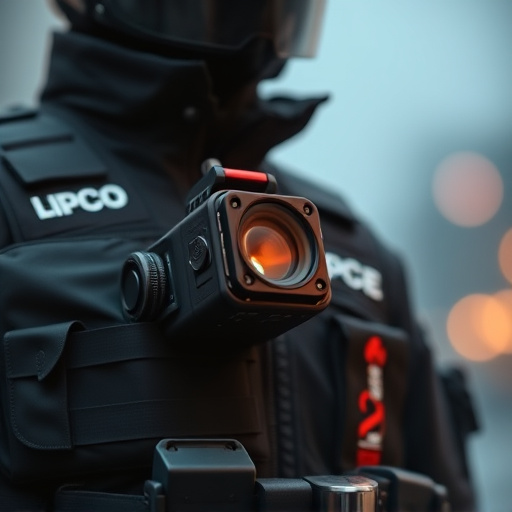Body-worn hidden cameras enhance personal security by providing discrete video evidence in potentially dangerous situations, but they raise legal and privacy concerns. Users must understand and comply with varying jurisdiction laws regarding consent and use to avoid legal issues. Privacy is crucial, requiring responsible handling of recordings while respecting individual rights. High-quality body-worn hidden cameras, with their advanced technology, offer clear footage, long battery life, ease of use, and ample storage for effective self-defense. However, the deployment of such devices sparks debate over privacy versus security, highlighting the need for balanced guidelines and regulations to protect civil liberties in this evolving field.
“In today’s uncertain world, individuals are increasingly turning to body-worn hidden cameras as a tool for self-defense and personal safety. This article explores the multifaceted topic of understanding and utilizing these discreet devices. We delve into the benefits and legal considerations surrounding body-worn hidden cameras, offering insights on choosing the right equipment.
Additionally, we navigate the ongoing debate on privacy, ethics, and self-defense, providing a comprehensive guide for those seeking to empower themselves with this technology.”
Understanding Body-Worn Hidden Cameras: Benefits and Legal Considerations
Body-worn hidden cameras, also known as body-mounted surveillance devices, are becoming increasingly popular for self-defense and personal safety. These compact and discrete cameras can be worn on clothing or accessories, allowing users to capture video evidence in various situations. One of the primary benefits is enhanced security, especially when individuals find themselves in potentially dangerous environments. The ability to record interactions provides a layer of protection and serves as a powerful tool for self-defense against false accusations.
However, it’s crucial to consider legal implications surrounding body-worn hidden cameras. Different jurisdictions have varying laws regarding the use of such devices. Some areas require explicit consent from all parties involved, while others permit their use without consent in specific circumstances. Users must be aware of and comply with local regulations to avoid legal issues. Additionally, privacy concerns should be addressed, ensuring that recordings are stored securely and used responsibly, respecting individuals’ rights.
Choosing the Right Equipment for Your Safety
When it comes to self-defense, investing in the right equipment can be a game-changer. A body-worn hidden camera is an innovative tool that offers peace of mind and valuable evidence in potentially dangerous situations. These discreet devices are designed to blend into your attire, allowing you to capture high-quality video or images without raising suspicion.
Choosing the right body-worn hidden camera involves considering factors like video quality, battery life, ease of use, and storage capacity. Opting for a device with a clear and stable image, long-lasting battery, simple activation, and enough memory to store multiple recordings is essential for effective self-defense. With advanced technology, these cameras can capture intricate details, ensuring you have concrete evidence should you ever need it.
Privacy, Ethics, and Self-Defense: Navigating the Debate
The debate surrounding body-worn hidden cameras for self-defense raises important questions about privacy, ethics, and personal autonomy. On one hand, these devices can serve as powerful tools for individuals’ protection, offering a sense of security in potentially dangerous situations. With rising concerns over personal safety, especially for those who frequently find themselves in high-risk environments, body-worn hidden cameras provide an extra layer of deterrence and evidence collection.
However, the very nature of hidden cameras invites ethical dilemmas regarding privacy rights. The ability to secretly record conversations and activities without consent can be seen as an invasion of personal space and a violation of civil liberties. Balancing self-defense needs with the right to privacy is a complex task. As technology advances, it’s crucial to establish clear guidelines and regulations for the responsible use of body-worn hidden cameras while ensuring that individuals’ rights are protected in this evolving landscape.
